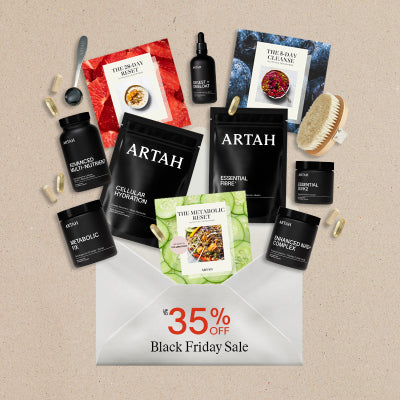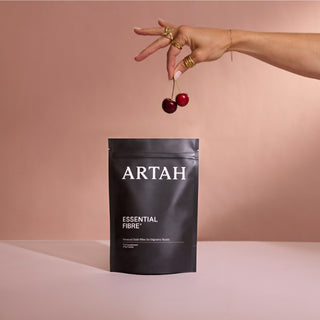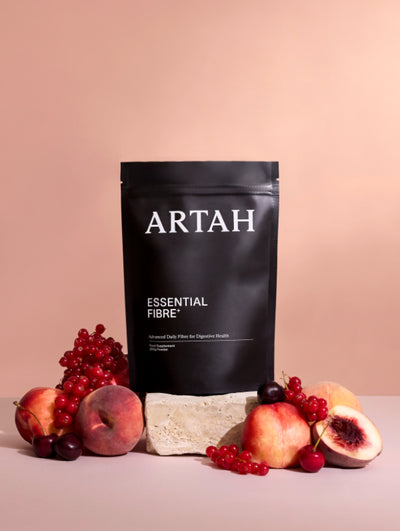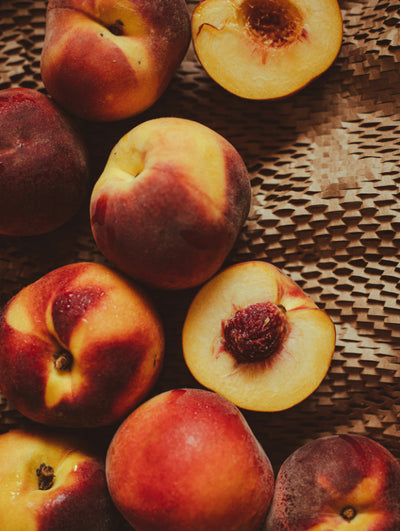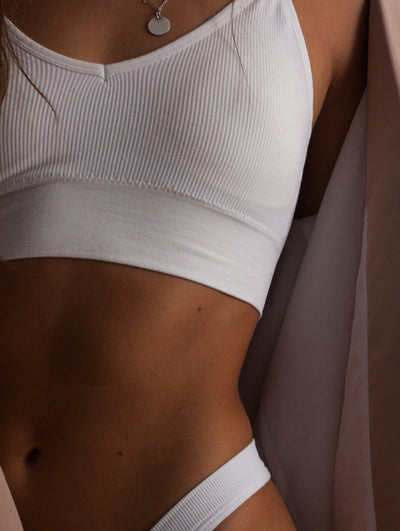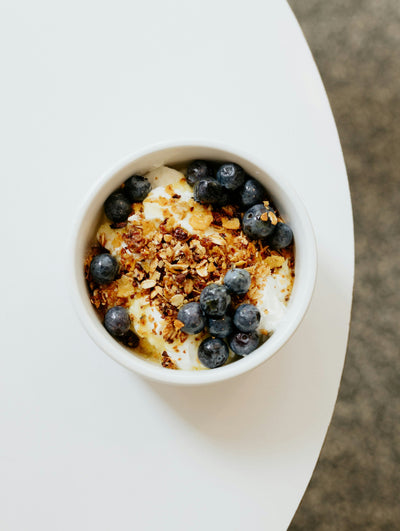Sunscreen is one subject that the internet doesn’t always agree on – but with lots of misinformation out there, we asked Rhian, our CEO and founder, and April, our Head of Nutrition, their thoughts on whether sun protection can come courtesy of the foods we eat. Here’s what they had to say:
Can you really “eat” your sunscreen?
APRIL: You can’t "eat sunscreen" in a way that makes topical protection obsolete. But certain foods and supplements can help to enhance your skin's resistance to UV damage, reduce inflammation and DNA damage and promote faster recovery after sun exposure.
RHIAN: No, and this is a dangerous trend! What we can do is improve skin health and resilience through targeted dietary changes and food supplements, but this should never be a substitute for sunscreen.
What foods can help protect your skin from the sun and how do they work?
Several foods can help protect your skin from sun damage due to their high content of antioxidants, carotenoids, polyphenols, and other bioactive compounds. These compounds can reduce inflammation, enhance skin barrier function, and even absorb UV rays. Here's a breakdown of foods supported by scientific studies:
Tomatoes are rich in Lycopene, a carotenoid which has been shown to reduce UV-induced skin damage.
Study: A 2001 study published in Journal of Nutrition found that participants who consumed tomato paste daily (40g with 10g olive oil) for 10 weeks had 40% less sunburn when exposed to UV radiation compared to controls.
Dark Chocolate is high in cocoa flavanols which can improve skin photoprotection and circulation.
Study: A study published in The Journal of Nutrition (2006) showed that women who consumed high-flavanol cocoa (326 mg/day) for 12 weeks had significantly lower sensitivity to UV-induced erythema (redness) compared to those who consumed low-flavanol cocoa.
Carrots, Sweet Potatoes, and Leafy Greens contain Beta-Carotene which naturally accumulates in the skin and acts as a natural sunscreen.
Study: A meta-analysis in Photochemistry and Photobiology (2007) found that beta-carotene supplementation offered modest photoprotection, especially after at least 10 weeks of supplementation.
Grapes + Berries are a source of Polyphenols and Resveratrol which have anti-inflammatory and antioxidant effects that protect against UV damage.
Study: A 2014 study in The Journal of Investigative Dermatology showed that resveratrol protects human keratinocytes against UVB-induced damage by enhancing antioxidant defense mechanisms.
Omega-3-rich Fish like EPA and DHA reduce skin inflammation and may lower sensitivity to UV exposure.
Study: A study in The American Journal of Clinical Nutrition (2009) found that EPA supplementation significantly reduced UVB-induced inflammation in the skin.
Green Tea contains EGCG and has strong antioxidant and anti-inflammatory properties.
Study: A 2011 study in The Journal of Nutrition found that daily consumption of green tea polyphenols improved skin structure and reduced sunburn cell formation after UV exposure.
Citrus Fruits contain Vitamin C which contributes to collagen production and protects against oxidative stress from UV exposure.
Study: While specific UV-protection studies are limited, a combined intake of Vitamin C and E has been shown to reduce sunburn reaction.
Are there any foods that increase our susceptibility to sun damage?
RHIAN: Alcohol can increase sun sensitivity by reducing the skin’s antioxidant protection, plus it can also lead to faster burning with the same level of sun exposure. Dehydrated skin is less resilient to the sun and more prone to damage, so over time if alcohol is leading to dehydration, this can also impact it.
APRIL: A diet high in ultra-processed foods can gradually weaken the skin’s natural defences, making it more prone to burning more easily and faster. This is largely due to the lack of essential nutrients in these foods, combined with the oxidative stress and inflammation they promote. While ultra-processed foods don’t directly increase UV sensitivity, they compromise the skin’s ability to protect and repair itself, leaving it more vulnerable to sunburn and premature aging.
Can we rely on them to protect us fully from the sun, and forgo our sunscreen?
RHIAN: No, definitely not. There is no natural ingestible alternative to SPF that has been proven to protect our skin in the same way. But if you’re looking at improving skin quality, immunity and reducing diet or lifestyle driven inflammation ahead of the summer season, it’s beneficial to make changes as early as possible. The good thing is that all the dietary patterns that will help improve factors relating to skin condition - like more phytonutrients from vegetables, fruit, nuts and seeds, more antioxidants, and better nutrient status - will also have other systemic benefits, so there’s no downside.
Do you have any favourite ways to consume these foods in the summer months?
APRIL: Nothing too imaginative, I love making substantial salads that include loads of different ingredients so its a main event rather than a side dish. I love adding a touch of sweetness with the addition of fruit.
RHIAN: Make sure you’re adding a good quality extra virgin oil to help improve absorption of fat-soluble vitamins related to skin health. I love fresh tomato salads with chopped pistachios, tons of herbs, extra virgin olive oil and a little lemon/salt.
Disclaimer: The information presented in this article is for educational purposes only and is not intended to diagnose, prevent, or treat any medical or psychological conditions. The information is not intended as medical advice, nor should it replace the advice from a doctor or qualified healthcare professional. Please do not stop, adjust, or modify your dose of any prescribed medications without the direct supervision of your healthcare practitioner.








































